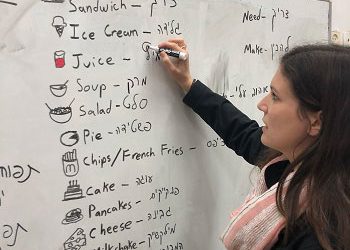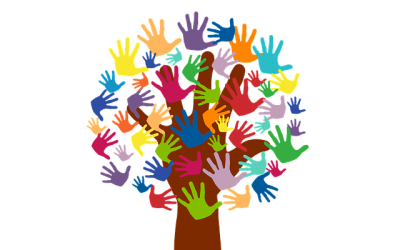You’ve been chosen and accepted to a once in a lifetime program – you have the privilege to move to Israel and teach, to make a difference, and to interact with a new culture. Great work! You’ll teach something that comes naturally to you, English, you’ll engage with your bubbling personality and you’ll absorb all the new experiences around you.
Through Masa Israel and Israel Experience, you’ll be able to provide key tools to young children that will bring the world to their front door. Thanks to you, they’ll learn English and be able to deepen their knowledge and understanding of the world outside Israel. Also, you will help them build the stepping stones to become more international and open to the world.
The Masa Israel Teaching Fellows (MITF) program is a program subsidized by a Masa Grant to cover a large part of the expenses of this journey.
Before you get started there is one thing you need, that we believe will make this path much easier. Something you can get by without but with it, your local experience will be richer.
Something valuable that will allow you to get a deeper understanding of your past and possibly your future.
The Hebrew Language
During your 10 months fellowship, you’ll begin with an intense crash course in Hebrew (to learn the basics) and then continue throughout the year at a more sedated pace to improve your Hebrew language skills. What does this mean aside from learning another language?
This means you’ll be able to:
- Interact more freely with your students.
- Tour Israel independently.
- Understand the locals and their culture at a new and deeper level.
- Contribute to Israel even more.
- Once you start understanding Hebrew you will feel more at home and at ease and will be willing to explore and discover more of the true Israel.
Learning a new language is not easy, but as you’ll be immersed in it 24-7, you’ll absorb it faster and feel at ease with it. Israel as a county encourages people to learn Hebrew in Ulpan so that they really know how to do this in an efficient and effective way.
You will be surprised at how quickly you will start picking up the language
Here are a few commonly used terms and phrases that will give you a head-start with you Hebrew language skills:
- Toda Raba – Thank you very much
- Be-va-ka-sha – You’re welcome
- Mana Falafel – One serving of falafel (This means you’ll get a pita with hummus, cut vegetables, and a few falafel balls)
- Boker Tov – Good morning
- Eifo Ha-sheruteem? – Where’s the bathroom?
- Sababa – Sounds good, everything’s good, great
- Mamash – Totally, absolutely (this can also be used sarcastically)
- Lo Ba Lee – Don’t feel like it
- Az… – So…
- Efshar Heshbone – Is it possible to get the bill?
- Ma Nishma? – what’s up
- Hakol Beseder – Everything is okay!
These will get your foot in the door with the Hebrew language, or at least a foot in the door at an Israeli Bar (just as important). You may not be able to master a full-on conversation just yet, but after attending classes, interacting daily with your students in both Hebrew and English, touring Israel and meeting the locals while attempting a discussion in Hebrew, you’ll definitely have a leg up on the language, even if your pronunciation of ‘Hummus’ (actually pronounced ‘Chummus’) is still a WIP.
Teach. Live. Learn.



